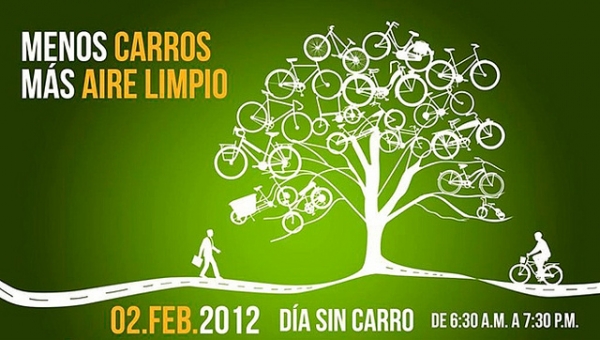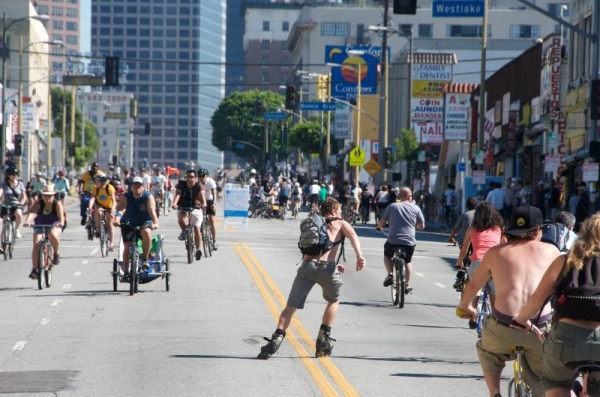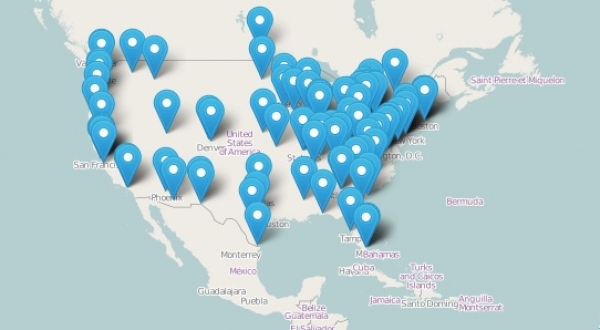Bring Your Motorist To Work Day

Our home, Valencia Street in San Francisco
This past Sunday we had a car-free event in San Francisco called Sunday Streets. Monthly, May through October, a major stretch of roadway is closed to cars. What happens next is kind of our idea of utopia. The streets are consumed by bikes and laughter and kids and families. For bike commuters like us, it's kind of like Bring Your Motorist To Work Day. For some friends, this is one of the few times they feel comfortable riding in the street.
Why Does This Matter?
Our Sunday Streets is modeled after a program in Columbia called Cicloviá. These programs liberate our most basic resource, public space, to allow us to strengthen our communities, our bodies, and our minds. They open the streets in our neighborhoods to conversations, instead of cars. They publicly promote and legitimize cycling and walking, and they democratize mobility in a profound and inexpensive way. Plus, they're a lot of fun.
Where Was It Born?

An add in Bogotá for Cicloviá proclaiming "less cars, more clean air"
Open Streets, as the movement is called, began with Cicloviá in Bogotá in the mid-1970's. Cicloviá was a reaction against the mounting pollution and congestion in Bogotá, as well as a way to promote both physical and social mobility. Private cars, and even Bogotá's revolutionary bus transit system, have costs. But taking a walk or bike ride, a major form of transport for many poor residents, on safe streets is free and empowering.
The program expanded substantially in the 1990's and blossomed into the model it is today. More than 30% of Bogotá's citizens make use of the weekly open streets, which cover 75 miles. 75 miles of car-free utopia.
Through Cicloviá, Bogotá was revolutionary in supporting all clases and all transportation needs. In addition to the weekly open streets, today Bogotá has over 180 miles of cycle tracks for daily commuting.


Participants of CicLAvia in Los Angeles
Where Is It Now?
The Open Streets movement has spread around the world from Australia to Venezuela. Ottawa, Canada has had street openings since the 70's, and in 2012 Los Angeles closed 9 miles to receive 100,00 people. Last year, Peru became the first to initiate a country wide campaign, making available federal resources for national adoption. Even Detroit, the Motor City, has hosted a 6-mile event since the early 80's.
Dozens more cities around the world host Open Streets events with more coming online every year. In fact, LA's next CicLAvia is this Sunday, April 21.

The USA alone has over 80 Open Streets programs
How Can You Get One?
The Alliance for Biking and Walking, together with The Street Plans Collaborative, has put together a great web resource for anyone interested in starting or supporting an Open Streets program. Check it out here for how to get involved.

Keep in touch
Occasionally we share updates to show off new bicycles we've built, promote sales, and reveal new products added to our line-up. Choose a way to be informed:

